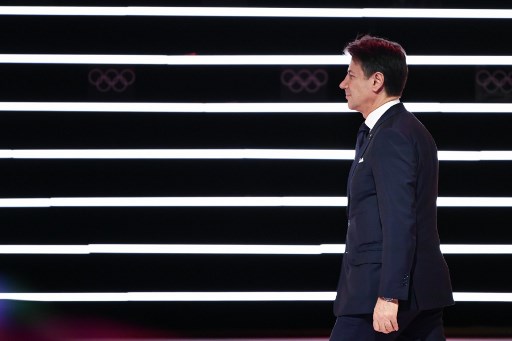Dubbed “Mr Nobody” when he was named Italy's prime minister, Giuseppe Conte became increasingly assertive with the ruling coalition in its death throes before on Thursday being asked to form a new government.
He masterfully thwarted far-right deputy prime minister Matteo Salvini's bid to bring the government down, resigning after 14 months of efforts to hold together a cabinet of far-right and anti-establishment ministers.
“We must transform this crisis into an opportunity,” Conte said on Thursday, promising a “more united, inclusive” country after a deal was struck which cuts the far-right out of power.
The discreet former academic, 55, last week lacerated Salvini in the Senate after he pulled the plug on the coalition with the Five Star Movement (M5S) on August 8th.
READ ALSO:
Agreed upon as a compromise candidate by Salvini and fellow deputy prime minister Luigi Di Maio last year, Italians have become used to Conte's soft-spoken declarations and the impossibility of his coming up with policies against the wishes of his two sparring deputies.

Photo: AFP
But Conte has become more strident as the summer's political crisis played out, with his dislike and distrust of Salvini becoming increasingly clear.
He slammed Salvini's “obsession” with immigration, noting that his government “has worked a lot and wasn't at the beach,” a clear dig at the League party leader who has spent little time in his office, instead snapping selfies in his swimming trunks at beachside party rallies.
Shortly before Conte's resignation announcement, Di Maio described him as “a rare pearl, a servant of the nation that Italy cannot lose”.
Academia, religion, and the south
Born in 1964 in the tiny village of Volturara Appula in the southern region of Puglia, Conte was a law lecturer at the University of Florence.
A devout Catholic and former leftist turned M5S supporter, he taught law at the University of Florence and at Rome's Luiss University.
But his other claims of study positions at some of the world's most prestigious universities were cast into doubt.
He moved from academia to the corridors of power in June 2018 when he became premier.
“I used to vote left. Today, I think that the ideologies of the 20th century are no longer adequate,” Conte once said.
Di Maio, also from Italy's poorer south, hailed Conte as “someone from the periphery of this country … who has made something of himself”.

Giuseppe Conte with Luigi Di Maio, leader of the Five Star Movement. Photo: Filippo Monteforte/AFP
Conte is reportedly “very religious” and devoted to mystic Catholic saint Padre Pio, who lived in Puglia.
The saint was famous for exhibiting “stigmata”, marks on his body supposedly matching the crucifixion wounds of Jesus Christ.
Caught in the middle
In February, Conte was caught on microphone telling German Chancellor Angela Merkel at Davos that Salvini was leaving little space for the M5S in government.
“My strength is that when I say 'OK now we stop', they (Salvini and Di Maio) don't fight anymore,” he said.
But as Salvini and the League gained popular support with staunch anti-migrant policies and anti-EU diatribes, the M5S lost support and the gap between Conte and Salvini widened.

Photo: AFP
Conte tried to assert himself, sometimes successfully, such as when he demanded the resignation of a Salvini ally and junior minister suspected of corruption.
He also ended a M5S-League dispute over a trans-Alpine rail tunnel to which M5S was virulently opposed, with the project now going ahead.
READ ALSO:
Some within M5S see Conte playing a future leading role in the party, while others see him leading a new political force. But Conte himself has always said that he will only have one go at politics and then return to teaching.
On Thursday, Conte conditionally accepted a new mandate and has a few days for political consultations to ensure a working majority in parliament.
Conte is separated from his wife and has an 11-year-old son who shares his passion for football.
On Tuesday, as Italy's latest political crisis played out, a banner could be seen hanging from a window near parliament: “Conte, Italy loves you.”

Photo: Alberto Pizzoli/AFP
READ ALSO:



 Please whitelist us to continue reading.
Please whitelist us to continue reading.
Member comments